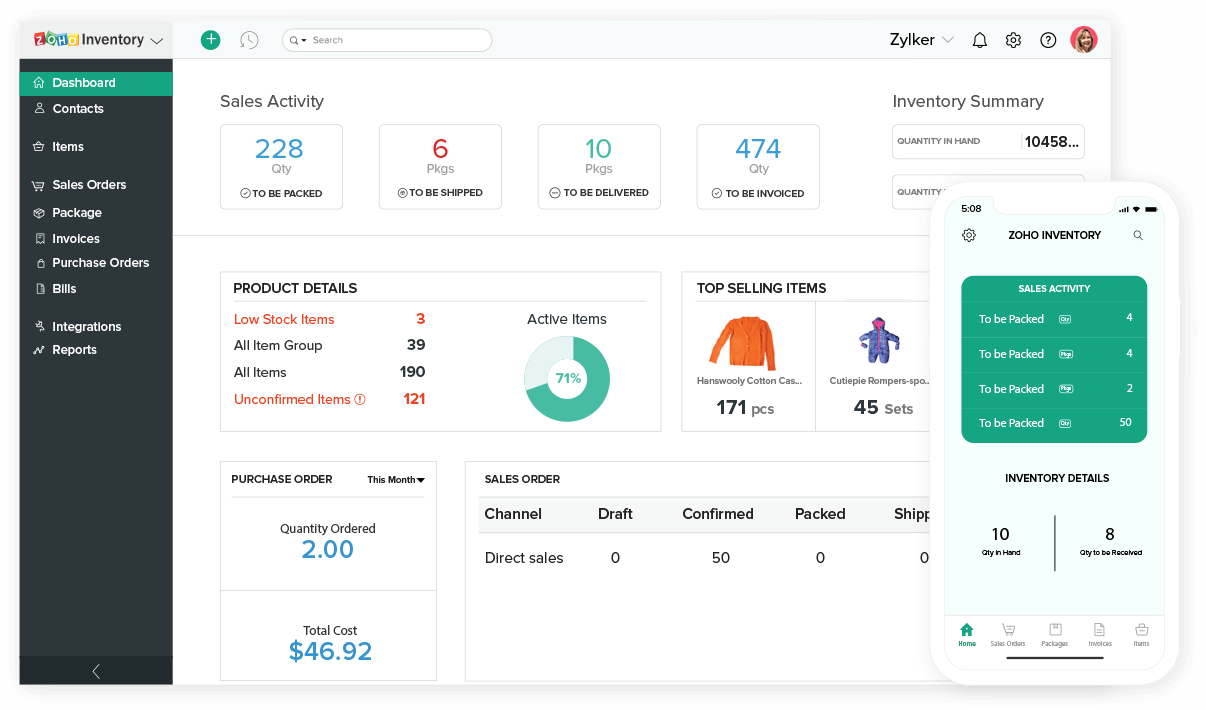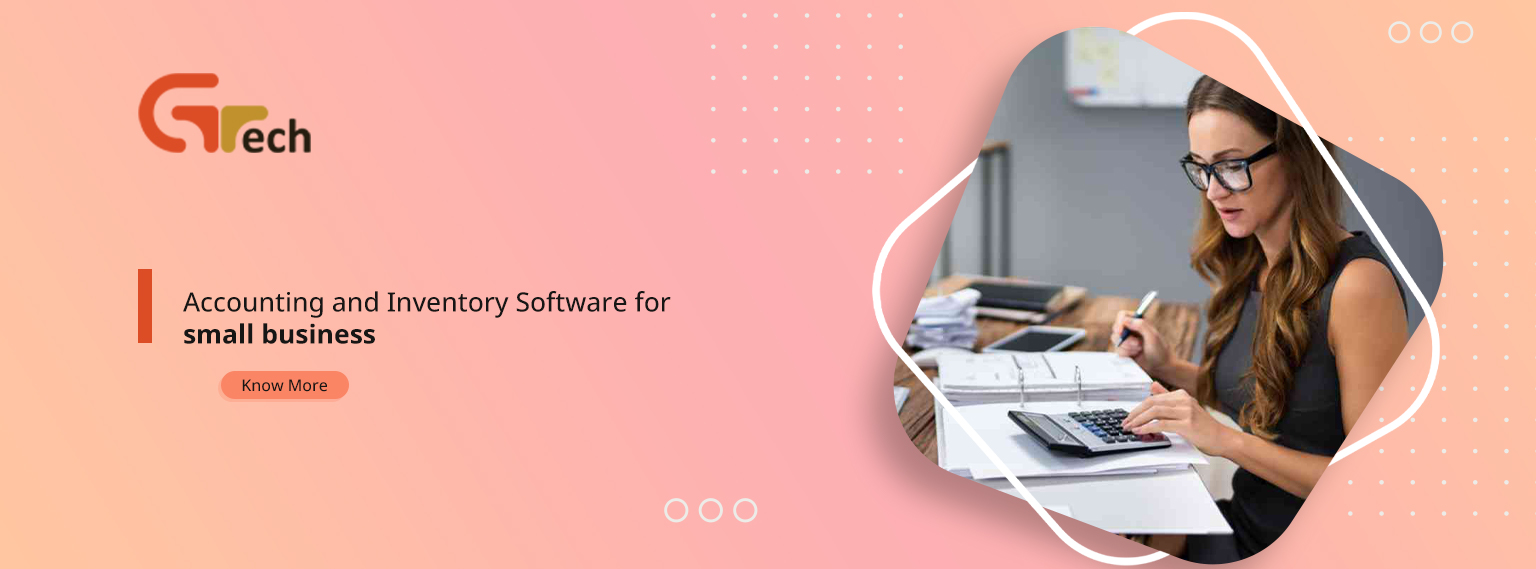Accounting & inventory software for small businesses has emerged as a game-changer, offering a plethora of benefits that streamline operations and drive growth. From automating tasks to providing real-time insights, these software solutions empower small businesses to stay organized, efficient, and profitable.
In this comprehensive guide, we will delve into the world of accounting & inventory software, exploring its features, functionalities, and benefits. We will also provide practical tips and considerations to help you choose the right software for your business.
Features and Functionalities of Accounting & Inventory Software
Accounting and inventory software can streamline various business processes, enhancing efficiency and accuracy. Let’s explore some of its key features and functionalities.
Comparison of Accounting & Inventory Software Features
Here’s a table comparing different accounting and inventory software options:
| Feature | Software A | Software B | Software C |
|---|---|---|---|
| Invoicing | Yes | Yes | Yes |
| Expense Tracking | Yes | No | Yes |
| Inventory Management | Yes | Yes | Yes |
| Reporting | Yes | Yes | Yes |
| Cloud-Based | Yes | No | Yes |
| Integration with Other Software | Yes | No | Yes |
Inventory Management Capabilities
Accounting and inventory software provides robust inventory management capabilities:
- Stock Tracking: Real-time visibility into inventory levels, allowing businesses to track stock across multiple locations and warehouses.
- Reorder Management: Automates the process of reordering inventory based on predefined minimum stock levels.
- Barcode Scanning: Streamlines inventory counting and data entry, reducing errors and increasing efficiency.
- Lot and Serial Tracking: Enables businesses to track specific batches or individual items for quality control and traceability.
- Inventory Forecasting: Analyzes historical data to predict future demand and optimize inventory levels.
Expense Tracking and Cash Flow Management, Accounting & inventory software for small business
Accounting and inventory software helps businesses track expenses and manage cash flow:
- Expense Categorization: Classifies expenses into different categories for better budgeting and cost control.
- Receipt Management: Captures and stores receipts digitally, providing easy access for expense verification and audits.
- Cash Flow Forecasting: Predicts future cash flow based on historical data and expected income and expenses.
- Accounts Payable and Receivable Management: Tracks invoices, payments, and outstanding balances, ensuring timely payment processing.
- Bank Reconciliation: Reconciles bank statements with accounting records, ensuring accuracy and reducing errors.
Benefits of Implementing Accounting & Inventory Software

Implementing accounting and inventory software offers numerous benefits for small businesses, ranging from cost savings to improved efficiency.
Cost-Saving Benefits
- Reduced Labor Costs: Automating accounting and inventory tasks can free up valuable employee time, allowing them to focus on more strategic initiatives.
- Eliminated Data Entry Errors: Software minimizes manual data entry, reducing the risk of costly errors that can lead to financial discrepancies.
- Improved Inventory Management: Accurate inventory tracking helps businesses optimize stock levels, reduce waste, and prevent overstocking.
Efficiency Improvements
- Streamlined Accounting Processes: Software automates tasks such as invoicing, bill payment, and financial reporting, making accounting processes more efficient and less time-consuming.
- Enhanced Inventory Visibility: Real-time inventory data provides businesses with a clear understanding of stock levels, enabling them to make informed decisions and avoid stockouts.
- Improved Collaboration: Shared access to accounting and inventory data facilitates collaboration between departments, reducing the risk of miscommunication and errors.
Case Study:
XYZ Widgets, a small manufacturing company, implemented accounting and inventory software. As a result, they experienced a 20% reduction in labor costs, a 15% decrease in inventory waste, and a 10% improvement in customer satisfaction due to improved inventory management.
Considerations for Choosing Accounting & Inventory Software: Accounting & Inventory Software For Small Business

Selecting the right accounting and inventory software for your small business is crucial for efficient financial management and inventory control. Here’s a checklist of factors to consider to make an informed decision:
Functionality: Ensure the software aligns with your specific business needs, including invoicing, billing, accounts receivable/payable, and inventory tracking.
Scalability: Choose software that can accommodate your business’s growth and expansion over time. Consider the number of users, transactions, and data storage requirements.
Ease of Use
The software should be user-friendly and intuitive, enabling your team to navigate it seamlessly. A cluttered or complex interface can lead to errors and reduced efficiency.
Customer Support and Training
Reliable customer support is essential for troubleshooting and resolving issues promptly. Comprehensive training programs ensure your team can maximize the software’s functionality.
Final Review

As we conclude our exploration of accounting & inventory software for small businesses, it is evident that these tools are not merely software applications but strategic investments that can transform your operations. By leveraging the power of these solutions, small businesses can gain a competitive edge, increase profitability, and set themselves on a path to long-term success.
FAQ Guide
What are the key benefits of using accounting & inventory software for small businesses?
Accounting & inventory software offers numerous benefits, including automated accounting processes, real-time inventory tracking, improved cash flow management, and enhanced financial reporting.
What are some important features to look for in accounting & inventory software?
When choosing accounting & inventory software, consider features such as ease of use, scalability, integration capabilities, reporting tools, and customer support.
How can accounting & inventory software help small businesses improve efficiency?
By automating tasks, providing real-time data, and streamlining processes, accounting & inventory software frees up time and resources, allowing small businesses to focus on growth and profitability.